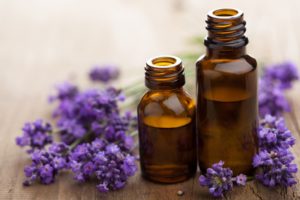Blog
Manage Seasonal Affective Disorder With Essential Oils
 Do you have the winter blues? It’s not uncommon to feel a little depressed and gloomy this time of year. In fact, according to the American Family Physician, about 6 percent of the population suffers from winter depression, also known as seasonal affective disorder (SAD). This condition is more common in women than men and mostly affects people who live in the colder, northern regions of the U.S, such as Minnesota.
Do you have the winter blues? It’s not uncommon to feel a little depressed and gloomy this time of year. In fact, according to the American Family Physician, about 6 percent of the population suffers from winter depression, also known as seasonal affective disorder (SAD). This condition is more common in women than men and mostly affects people who live in the colder, northern regions of the U.S, such as Minnesota.
With an average low temperature of 3 degrees, Minnesota’s winters can be brutal. If the freezing cold and short, dark days have you feeling down, learn what you can do to manage the symptoms of SAD.
What Causes Seasonal Affective Disorder?
Researchers are unclear on what exactly causes seasonal affective disorder, but studies suggest a few possible sources:
- Serotonin deficiency. Serotonin is one of the feel-good hormones, like endorphins and dopamine. If your serotonin levels are low, you need more vitamin D — the vitamin responsible for producing this hormone. A vitamin D deficiency is common in the winter when people spend less time in the sun.
- Irregular melatonin levels. Shorter, darker days also affect your body’s melatonin levels. Melatonin is a hormone that controls your wakefulness. When it’s dark, your body produces more melatonin, causing you to feel tired. That’s why you may feel sleepy more often in the winter.
- Upset circadian rhythm. Also referred to as your biological clock, your circadian rhythm can be disrupted as the daylight hours grow shorter and shorter. Your body may have a hard time adjusting to a normal sleep schedule because of this disruption.
The good news is you have several options for treating the sadness and fatigue that comes along with seasonal affective disorder. Some effective strategies for treating SAD may include taking a vitamin D or melatonin supplement. You might also benefit from spending more time outside and doing light therapy.
Another promising treatment that has gained a lot of popularity in recent years is the use of essential oils.
How Do Essential Oils Work?
Essential oils work in one of two ways. You can apply them to your skin where they become absorbed into your bloodstream. Or you can diffuse them and inhale the essential oils so that they stimulate your central nervous system. When used properly, essential oils offer many benefits to your well-being.
Which Essential Oils May Treat SAD?
A number of essential oils are used in aromatherapy to treat depression, anxiety, and fatigue — all of which are common symptoms of seasonal affective disorder. Below are a few of the most common oils used for this purpose.
Bergamot
Bergamot oil comes from the lime-green bergamot orange. It is one of the most popular essential oils for treating depression. If you rub this oil on your skin, keep in mind that it can increase your sensitivity to the sun.
Orange and lemon
Other citrus fruits that are useful for aromatherapy include lemons and oranges. Oils from these fruits can help you feel more calm and alert. Try massaging a blend of orange and lemon oils onto your temples for nearly instant relaxation.
Basil
In addition to giving soups, stews, and other dishes a tasty flavor, basil may also provide a mental boost. Research suggests that basil can help prevent burnout and mental fatigue. You can mix it with peppermint or rosemary for an extra concentration boost.
Clary sage
If you have trouble sleeping or feel anxious throughout the day, clary sage may offer relief. This flowering herb helps to induce sleep and bring a sense of calm when sniffed.
Rose
Rose oil is pressed out of the petals of roses. Several studies demonstrate its effectiveness at relieving stress and symptoms of depression. Consider combining it with lavender oil for even greater relief.
For more information about which essential oils may help treat SAD, talk to your essential oils supplier.
How Do You Use Essential Oils?
To use essential oils, first dilute them with a carrier oil, such as olive oil, sweet almond oil, or grapeseed oil. Aim for a 1–5% ratio of essential oil to carrier oil. Dilution is very important as essential oils are too concentrated to use on their own. You could suffer an unpleasant skin reaction by skipping this step.
Once you’ve diluted your oil, you can massage a few drops on your temples, feet, wrists, neck, or the skin behind your ears. Or if you prefer, add five or six drops to your bathwater, or place three to six drops in a diffuser.
If you choose to use a diffuser, leave it on for 30 to 60 minutes at a time for up to 3 times a day. After a few sessions, you should start to feel a noticeable improvement in your mood.
At Corner Home Medical, we supply a range of essential oils and diffusers. Contact us today to learn more about our high-quality aromatherapy products and how they can help you enjoy a boosted mood this winter.
